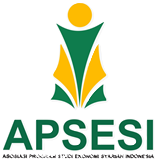The Influence of HDI, Per Capita Income, Population Growth on Poverty on Java Island in 2017-2022 with Zakat as a Moderating Variable
DOI:
https://doi.org/10.53491/oikonomika.v5i1.679Keywords:
HDI, Per Capita Income, Population Growth, Zakat and PovertyAbstract
This research aims to determine the effect of the Human Development Index, Per Capita Income, and Population Growth on Poverty on Java Island in 2017-2022 with Zakat as a Moderating Variable. This type of research is quantitative research with a population, namely the Province of Java Island. Meanwhile, the sample for this research was determined using the Saturated Sampling method with criteria determined by the researcher so that a sample of 36 samples from 6 provinces were obtained during the observation period (2017-2022). The type of data used is panel data. The analytical methods used include descriptive tests, statistical tests, stationary tests, multiple regression tests, T-tests, F tests, R² tests, classical assumption tests, and MRA tests. The Moderated Regression Analysis (MRA) test uses Eviews 10 data processing software. The results of the research partially show that the Human Development Index variable has a negative and significant effect on poverty and Per Capita Income has a negative and significant effect on poverty. Based on the Moderated Regression Analysis (MRA) test, shows that the interaction of Zakat is unable to moderate the influence of the Human Development Index, Per Capita Income, and Population Growth.
Downloads
References
Arifin, A. (2019). Analisis Faktor - Faktor Yang Mempengaruhi Kemiskinandi IndonesiaTujuan dari penelitian ini ada. Jurnal Administrasi Publik Dan Bisnis, 1(2), 1–15.
Azizah, E. W., & Kusuma, H. (2018). Pengaruh pendidikan, pendapatan perkapita dan jumlah penduduk terhadap kemiskinan di provinsi jawa timur. 2, 167–180.
Huda, S., & Yuliati, A. (2022). Analysis of The Influence of Minimum Wage and Human Development Index On Unemployment Rate In Indonesia]. Devotion Journal of Community Service, 3(13), 2171–2176. https://doi.org/10.36418/dev.v3i13.271
Kevin, K., Putri, A. K., & Nasrun, A. (2020). Pengaruh inflasi dan laju pertumbuhan penduduk terhadap kemiskinan di Sumatera Bagian Selatan tahun 2011-2018. Sorot, 15(1), 33. https://doi.org/10.31258/sorot.15.1.33-42
Lapopo, J. 2012., & Ekonomi. Vol 20, N. 1. (2012). No Title. Pengaruh ZIS (Zakat, Infak, Sedekah) Dan Zakat Fitrah Media, Terhadap Penurunan Kemiskinan Di Indonesia Periode 1998-2010., 02.
Mukhtar, S., Saptono, A., & Arifin, A. S. (2019). Analisis Pengaruh Indeks Pembangunan Manusia Dan Tingkat Pengangguran Terbuka Terhadap Kemiskinan Di Indonesia. Ecoplan : Journal of Economics and Development Studies, 2(2), 77–89. https://doi.org/10.20527/ecoplan.v2i2.20
Nurjihadi, M., & Dharmawan, A. H. (2016). Lingkaran Setan Kemiskinan Dalam Masyarakat Pedesaan ,. Jurnal Sosiologi Pedesaan, 120–127.
Purbasari, I. (2015). 15911-30213-1-Pb. Mimbar Hukum, 27(1), 68–81.
Sayifullah, S., & Gandasari, T. R. (2016). Pengaruh Indeks Pembangunan Manusia Dan Pengangguran Terhadap Kemiskinan Di Provinsi Banten. Jurnal Ekonomi-Qu, 6(2), 236–255. https://doi.org/10.35448/jequ.v6i2.4345
Sulistio Mirza, D. (2012). Pengaruh Kemiskinan, Pertumbuhan Ekonomi, Dan Belanja Modal Terhadap Indeks Pembangunan Manusia Di Jawa Tengah Tahun 2006-2009. Economics Development Analysis Journal, 1(1), 1–15. http://journal.unnes.ac.id/sju/index.php/edaj
Trisnu, C. G. S. P., & Sudiana, I. K. (2019). Pengaruh Pertumbuhan Penduduk, Pengangguran, dan Pendidikan terhadap Tingkat Kemisikinan Kabupaten/Kota Provinsi Bali. E-Jurnal EP Unud, 8(11), 2622–2655.
Downloads
Published
How to Cite
Issue
Section
License
Copyright (c) 2024 Dani Esti Naini

This work is licensed under a Creative Commons Attribution-ShareAlike 4.0 International License.





